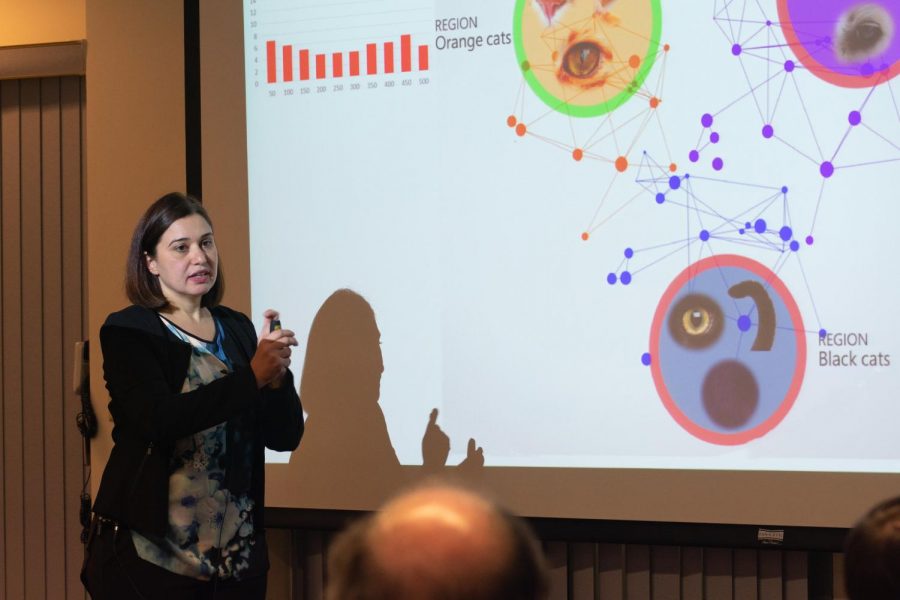It’s no secret that women are under-represented in the global technology industry. In the United States alone, women occupy only around 25 percent of computer-related occupations. This naturally raises the concern: how do we overcome this disparity?
One solution that has gained traction is the creation of women-only spaces to facilitate female technological innovation in a “safe environment.” While this idea seems good in theory, it is valuable to pause and assess its utility. To do so, we must ask about the proponents for these women-only events and what objective they are trying to achieve.
If the goal is to change people’s perception – particularly men – regarding women’s competence in technological disciplines, then isolating women from the opposite sex seems counter-intuitive. Say that I am a man working in technology and I believe women to be inherently inferior in this field. The fastest way for me to get over this misconception would be to work with women first-hand. Low on the list of things likely to change my mind, meanwhile, would be exclusionary events like all-women hackathons where the success of women appears to hinge on the absence of men.
Moreover, if the goal is to overcome imposter syndrome, often cited by women working in the tech industry, then a logical means for more women to feel like they belong would be to assimilate themselves into co-ed work environments – the rationale here being that any woman who has sat in a co-ed classroom knows that there is no shortage of inexperienced men out there. In fact, girls traditionally outperform boys in most school disciplines. Working with men, then, should only drive home to women the fact that they belong in the tech industry just as much as men do.
I myself encountered this sense of “feeling like an imposter” at my first ever hackathon, which was interestingly of the all-women variety. I realized, however, that my insecurity stemmed not from the fact that I was a woman, but that as a non-STEM major; I was very inexperienced compared to my fellow attendees. What helped me greatly were the beginner-friendly events organized at the venue, which led me to wonder why men starting out in tech couldn’t also benefit from such events. If anything, it would be a reassuring sight for women to see men starting out at the same place as them – not just jumping out of the womb, ready to code.
The point is that further integration at all levels of expertise, and not segregation, is the answer to the gender disparity problem. As software engineer Kate Scheer put it, “Impostor Syndrome could strike anyone who’s ever been looked at sidelong for being an outlier, like San Fran and Storage guy: ‘fresh’ college kids among seasoned Linux-beard pros. A Black man in a team of white coworkers. A gay man surrounded by men with pictures of their wives and kids on their desks. We’re all susceptible because we’re all human, and humans have a habit of singling out the differences, any differences, regardless of their applicability.”
Additionally, the language and attitudes surrounding these women-only spaces often come off to me as nothing short of patronizing. In an article about the recommended steps for recruiting more women in technology, author Dan Formosa’s suggests – among other things – “planning events where winning is not goal.” The underlying assumption here is hard to miss: women can’t deal with competition.
To answer the question initially posed regarding the pragmatism of women-only spaces in tech, I would say that they could better achieve their posited goals by pivoting from a solely “women-friendly” approach to a more “beginner-friendly” one. This would foster a healthier environment where both men and women could look each other’s expertise and inexperience dead-in-the-eye and work from there.
The broader point I’m making here is that often, with problems of under-representation of certain groups in society, our gut response is to adopt surface-level solutions to what are in fact deeper-rooted disparities. These surface-level solutions are at best futile, and at worst counter-productive, as they end up perpetuating the very stereotypes they claim to fight.
Take the issue of the under-representation of women in tech, for instance. The University of Technology Sydney recently announced plans to lower the bar for women to gain entry into their engineering and construction programs. This move is once again not a sustainable solution to the posited problem. For one, the lack of female representation in computer science does not suddenly arise at the university level. Rather, it is contributed to by a host of factors including, but not limited to, the lack of proper computer science instruction in schools. Moreover, this “booster seat” attitude toward female engineering aspirants is demeaning and only perpetuates the misconception that women in these fields are inherently less competent than their male-counterparts.
The solution to the “female under-representation” problem isn’t to lower the bar but to more actively and rigorously recruit individuals into the discipline from the bottom up, not just at the time of college admissions or job recruitment. This means better instruction and the instruction of computer science into the public-school curriculum so that it may expand its reach beyond the often predominantly male after-school clubs.
I’ll leave with the tongue-in-cheek words of comedienne Bridget Phetasy: “the best way to teach young women they’re just as smart as men is by signaling they need assistance in order to compete with them.” That shouldn’t be the case.
Bhavya Pant can be reached at [email protected] and followed on Twitter at @bhavya_pant.




















